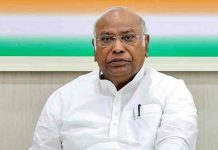 Newspapers and news magazines have been keeping the people up-to-dated with information on the latest developments even during these difficult times. Tehelka has been delivering free and fair journalism sans political propaganda and vested interests at a time when in many cases, the press in itself has shown cowardice and has turned an interest group to suppress the truth. There were reports that China suppressed information about the pandemic outbreak and a video journalist, Chen Qiushi who was first to report on the Chinese government’s handling of the outbreak in Wuhan still remains untraceable since February. It is a fact that during crisis like Covid-19, newspapers are the primary source of most authentic in-depth information when authorities try to hide facts.
Newspapers and news magazines have been keeping the people up-to-dated with information on the latest developments even during these difficult times. Tehelka has been delivering free and fair journalism sans political propaganda and vested interests at a time when in many cases, the press in itself has shown cowardice and has turned an interest group to suppress the truth. There were reports that China suppressed information about the pandemic outbreak and a video journalist, Chen Qiushi who was first to report on the Chinese government’s handling of the outbreak in Wuhan still remains untraceable since February. It is a fact that during crisis like Covid-19, newspapers are the primary source of most authentic in-depth information when authorities try to hide facts.
Working at a great peril to their health from virus, journalists have unfolded stories about the misery of thousands of honest and poor workers, the backbone of India’s economy, walking and pedaling from their places of work back to their homes, thousands of kilometres away with women and children trudging along and some dying on way. Of course journalists run the risk of crossing the thin line that separates journalism from activism.
Newsrooms have made pandemic coverage a priority but unverified data being fed to media houses makes the task of journalists all the more daunting. Indeed, Covid-19 pandemic has posed a new challenge for print journalism and today it is struggling for survival. Lockdowns and curfews enforced by the authorities have resulted in newspapers and magazines not reaching many readers due to hurdles in distribution.
When the Prime Minister, Narendra Modi announced a Rs 20 lakh-crore stimulus package amounting to 10 per cent of the country’s GDP, his intervention for a bail out package for media was expected. The Indian Newspaper Society has also urged the government to release a strong stimulus package along with other relief measures to help the newspaper industry. In the absence of a package, journalists are being furloughed, retrenched, given salary cuts and shown the door.
In fact it is a double whammy for journalists as during pandemic, the frequency to arrest journalists has increased under the sedition law to fight fake news to suppress inconvenient reports. It began with the arrest of journalist Bhupinder Singh Sajjan from his house in Hoshiarpur’s model town in Punjab for allegedly trying to justify the violence committed by the Nihangs in Patiala on April 12. A month later on May 12, Dhaval Patel, Editor of a news portal in Gujarat who had written an article that Chief Minister, Vijay Rupani may be replaced for his inept handling of pandemic was arrested. Ironically, the arrest was under Section 54 of the Disaster Management Act. A reporter was arrested in Andaman, another in Coimbatore while in Delhi a reporter was summoned for claiming in his report that audio clip purported to be a speech by head of the Tablighi Jamaat was actually doctored. Indeed it is a difficult time for journalists.












